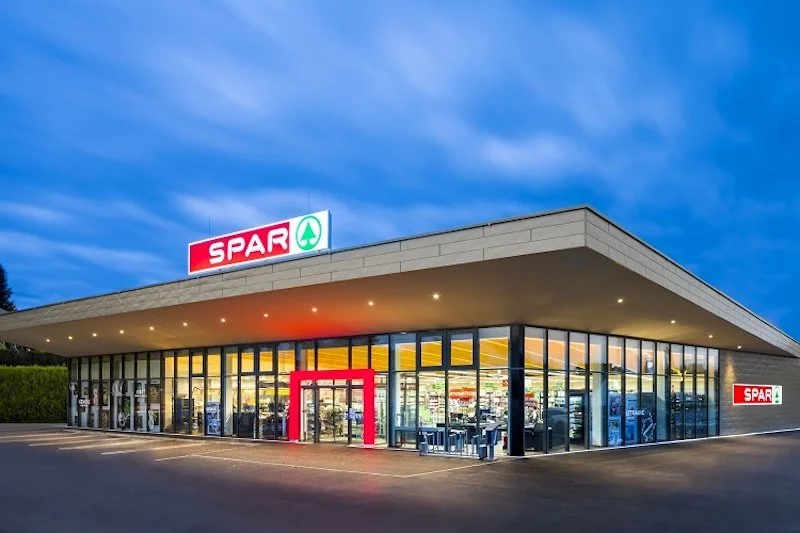Your own platform or your own pace? It’s time retailers stopped being forced to choose between the two
By Deann Evans, Director of EMEA Expansion & Partnerships at Shopify
Off-the-shelf or your own expensive set-up? It can be tricky to choose for growing enterprises. The time has come for a middle way - a component infrastructure that offers flexibility at scale.
The narrative around growing businesses always focuses on the struggles of scrappy start-ups trying to scale, founders sleeping on the floor and living off instant ramen while chasing hockey stick growth.
But scaling is not an issue that ever goes away. Bigger commerce companies often face their own challenges in this area, especially when it comes to their tech stack. So how can you ensure that when you’re scaling your business, your IT infrastructure doesn’t let you down?
Off-the-shelf
When deciding what type of tech stack to go for it often makes sense to start out with turnkey, mass market solutions. The initial cost is usually lower than completely bespoke solutions, you have the benefit of the provided customer support and upgrades and you can get started straight away.
When it then comes to scaling your business, it can be tempting to stick with what you know. However end-to-end commerce platforms can only get you so far before you run into their limitations as an enterprise merchant.
You need to be able to customise your infrastructure to fit your own needs. You own your niche, and the bigger you grow the more your nuances and needs aren’t recognised by off-the-shelf solutions - why would they be?
Perhaps your slow fashion line has a high rate of returns built into the business model. Or maybe your made to measure homeware has longer than average production and delivery times. Your business is unique, so you need a unique tech stack.
Completely bespoke solutions
There is the option of building your own completely bespoke solution which can help overcome the limitations posed by end-to-end platforms. It can mean having a solution well tailored and fully integrated into your business, and with the ability to scale.
However, building your own custom stack is a hugely complicated process and requires lots of new hires.
It varies by area but Stack Overflow’s 2022 developer survey found that the median annual salary for developers in many categories is well over £72,000/$90,000. And you’re going to need to hire plenty, and engineering managers and directors to boot.
Not only that, building a custom solution can take years to complete, so whilst you may have your own platform, your pace of development will be slowed significantly. Yet retailers today with enterprise scale aspirations need to be able to innovate in real-time to maintain that oh so necessary competitive edge.
Don’t compromise on either
Commerce solutions providers need to give retailers the flexibility to integrate and innovate without restrictions, while offering trusted infrastructure components.
When you create a bespoke solution, you don’t necessarily know how well it will work for your organisation, and you certainly can’t count on reviews from previous users.
This feels like a mammoth risk when you’re spending that much time and money on it. That’s why having an infrastructure you can trust and know will work well is much more desirable.
A middle ground between off-the-shelf and completely bespoke solutions is clearly needed as these shortcomings are holding retailers back, and at the worst possible time. Larger businesses graduating out of that SME under 1,000 employees category are facing difficult challenges to grow, especially with today's turbulent economy.
Solutions which enable enterprise retailers to take the components they need, and leave what they don’t, access the right APIs and work with experts on utilising them without having to hire a whole department are essential for developers to securely build any back-end framework they choose.
This new way overcomes the limitations of traditional end-to-end commerce platforms and the downfalls of building your own unique solution. Brands should be able to focus as much of their investment as possible on their customers and their products, enabling them to scale up successfully - especially right now.
Our own vision for this, Commerce Components, shows what can be done, and quickly when you give merchants a modern, composable stack for enterprise retail where retailers can take components of Shopify to integrate with their own systems.
Mattel, the iconic toy manufacturing retailer, is already taking advantage of the toolset.
Having already used our platform for two of its brands, American Girl dolls and Mattel Creations collector site for special edition products, it now will bring its entire portfolio of brands to the platform, including the likes of Barbie, Hot Wheels and Fisher-Price, whilst integrating the company’s existing services into Shopify’s modular components.
Ultimately, merchants of all sizes need to do whatever they can to get through the current storm and having the right tech stack is a crucial foundation. Leaders in every sector of retail and e-commerce should be questioning if it’s time to chart a new path and modernise their tech stacks.
A component infrastructure that offers flexibility at scale can provide what previous solutions cannot, and might be just the tool needed for getting through these tumultuous times.















Continue reading…